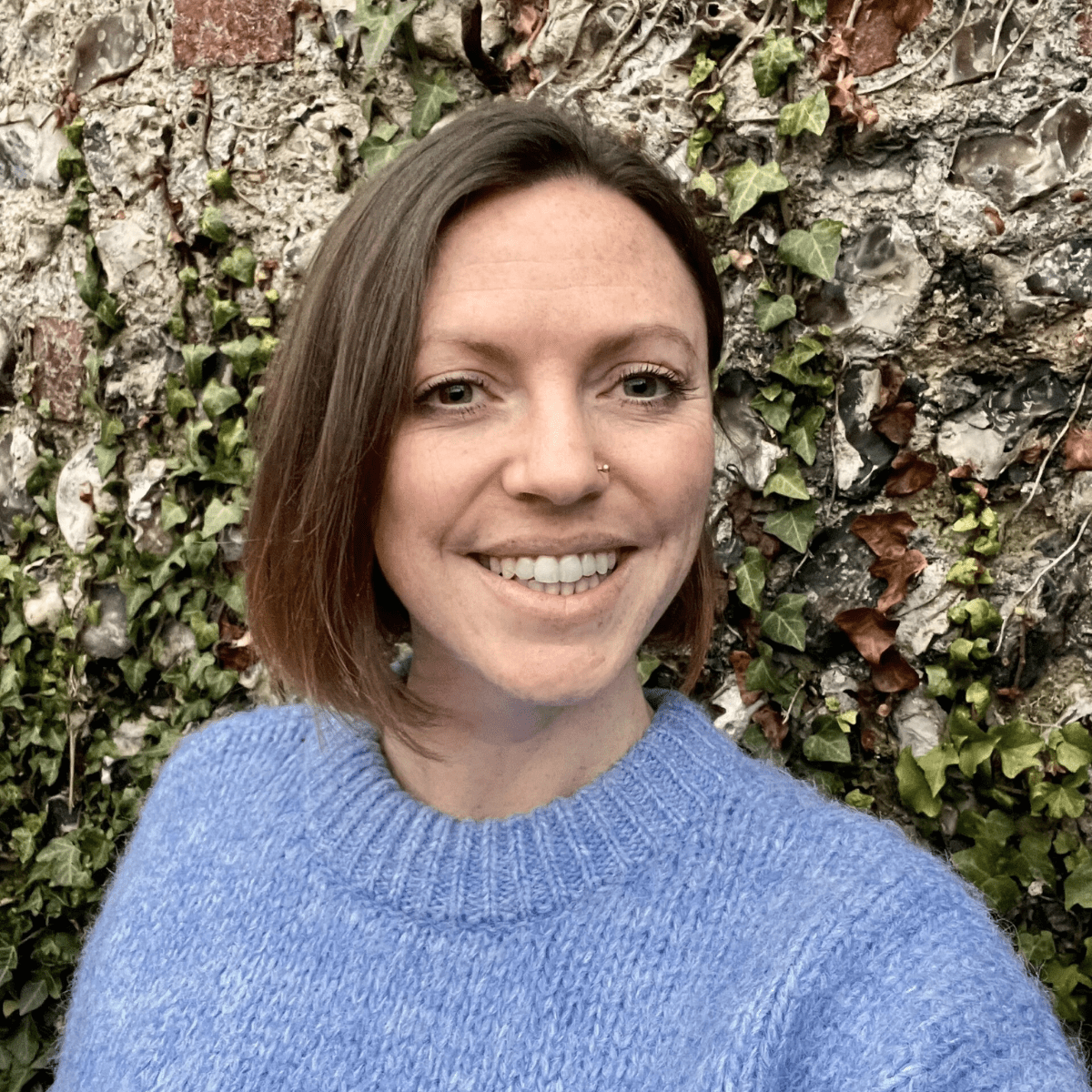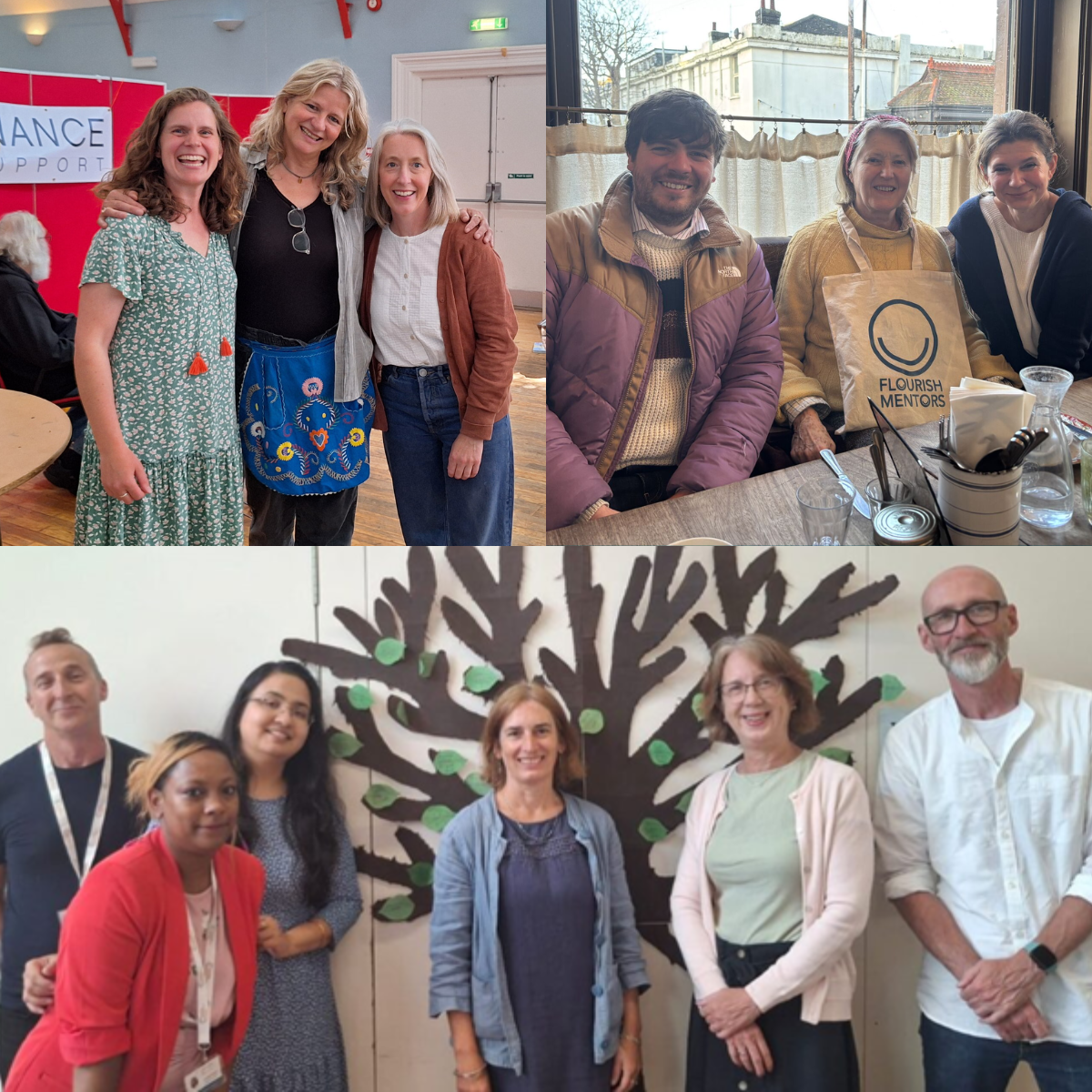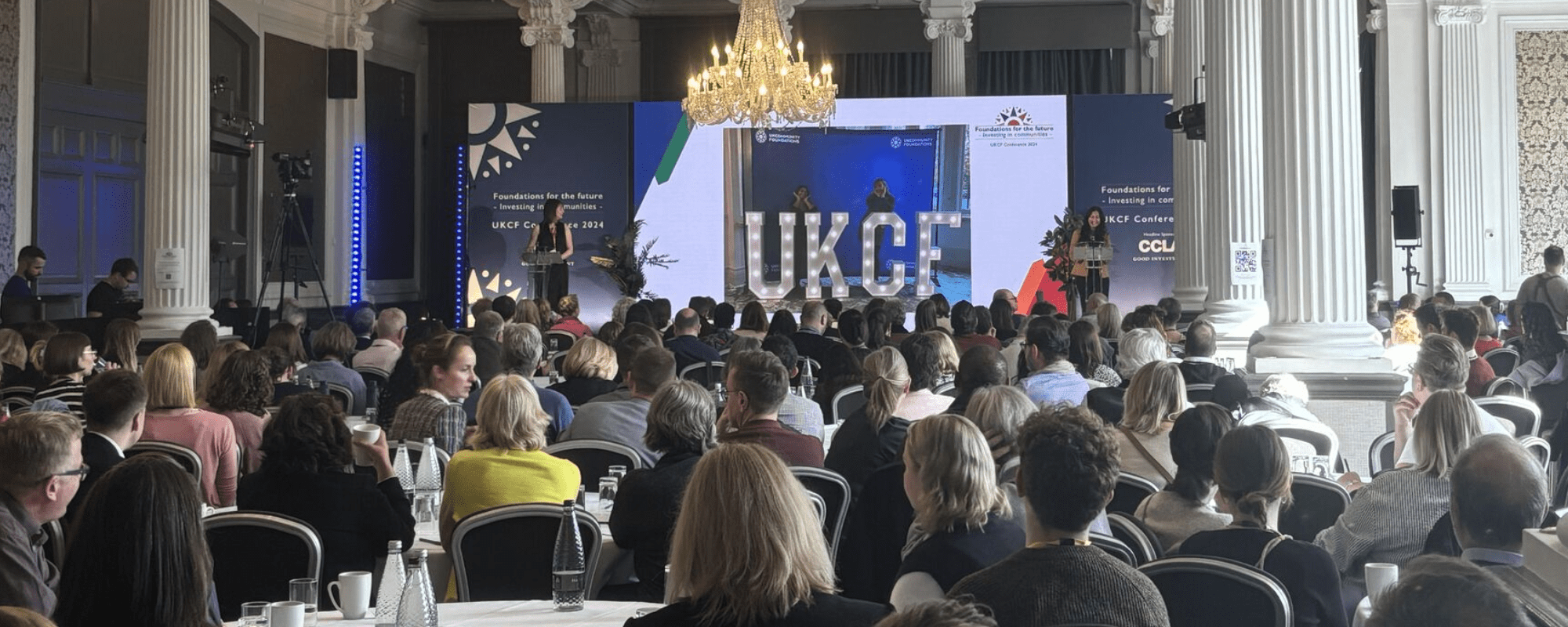
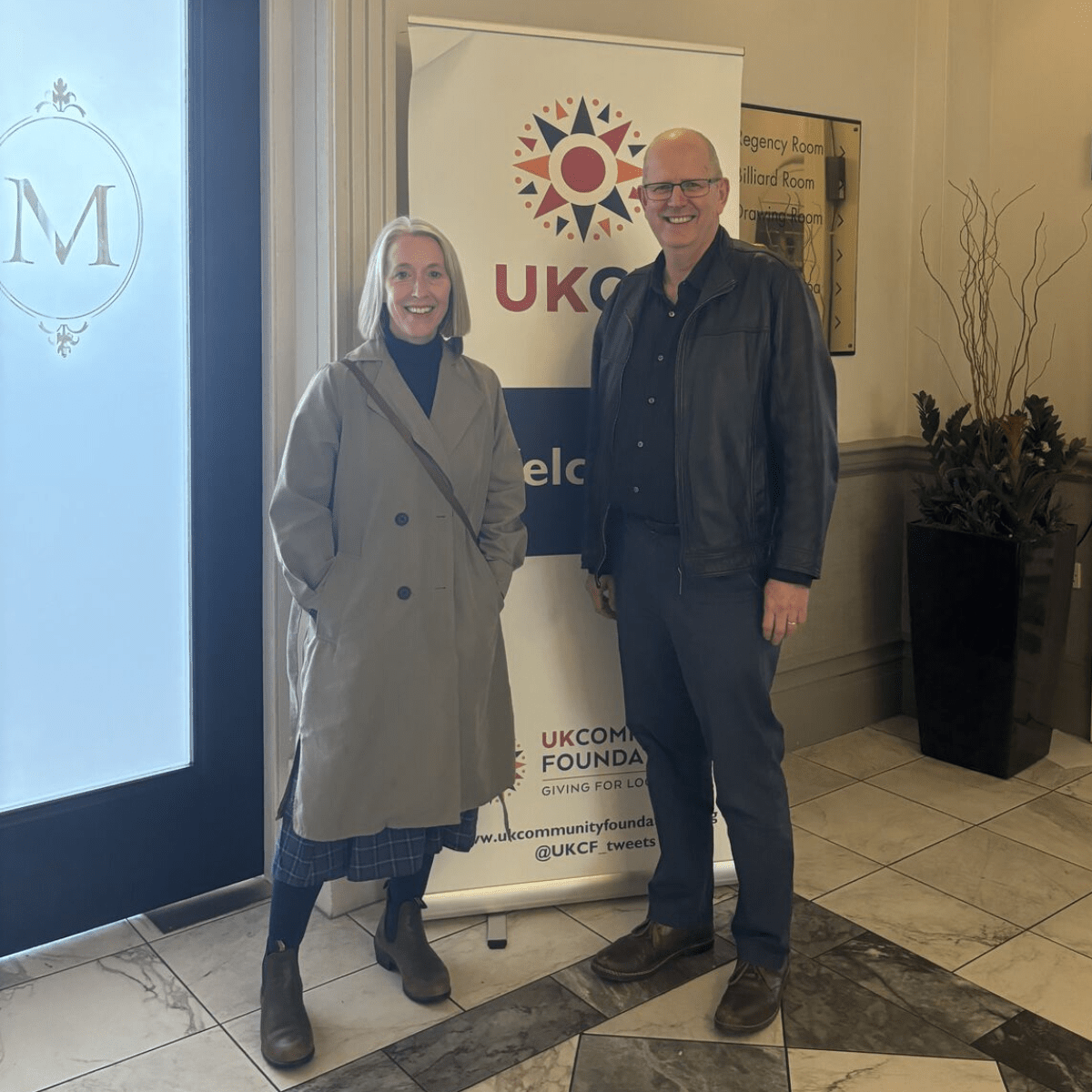
Earlier this month, Kevin Richmond, CEO, and I spent three days in Harrogate at the UKCF 'Foundations for the Future: Investing in Communities' conference. In-person conferences are less common than they used to be, and the extended programme was a fantastic opportunity to connect with delegates across the UK, Europe and internationally. The event was filled with inspiring sessions, featuring speakers from the Community Foundation network and prominent social and business leaders who shared valuable knowledge.
One talk that has given a lot of food for thought was from Tom Neill-Eagle at plinth and Tim Cook from AIConfident on AI and its potential role for grant makers. They demystified the topic but also challenged us to think much more ambitiously about AI than just automating existing tasks. We should instead ask fundamental questions about the way we do our grant making and philanthropy, and what the uniquely human aspects of both are.
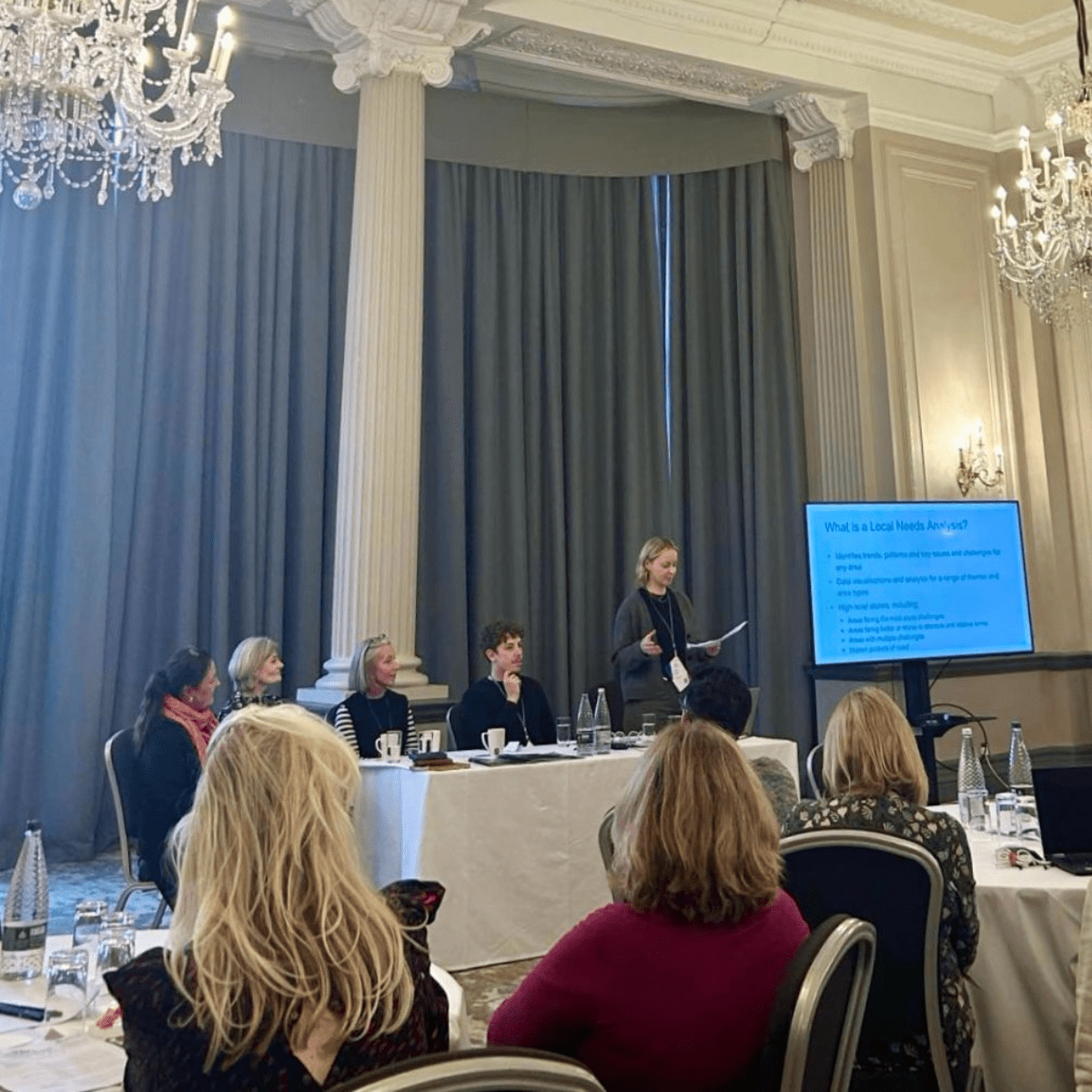
I was also pleased to join the panel for a session on Transforming Local Needs Analysis, chaired by Rachel McGrath, CEO of Northamptonshire Community Foundation. Our panel of experts included Margaret Firth from Wiltshire Community Foundation and partners at OCSI (Oxford Consultants for Social Inclusion), Aaron Henderson and Katie Leach. Together, we shared our approach to using local data and insights to guide grant-making strategies — an approach we adopted at Sussex Community Foundation after our first report launched in 2013, and which has since become even more central to our work in philanthropy, grants, and across our communications.
Our data-driven reports benchmark Sussex against regional and national trends to identify priority areas for funding. We collaborate closely with OCSI to gather and analyse data, while our in-house team designs and produces the final reports. Beyond statistics, we bring in real-world perspectives with case studies and quotes, illustrating the impact of local charities on the communities we serve. We also delve into specific issues, such as child poverty, or geographical issues, which not only inform our strategy, but also act as a force for positive local action.
These reports spark important conversations by revealing surprising statistics that catch attention and inspire change across Sussex and beyond. Our latest, on Reaching Potential can be found here.
Overall, it was good to be reminded we are part of a movement of over 2,000 community foundations around the world, who we can learn so much from. We came away from the conference tired yet very inspired and with lots of new connections that we can bring to the work we do in Sussex.
